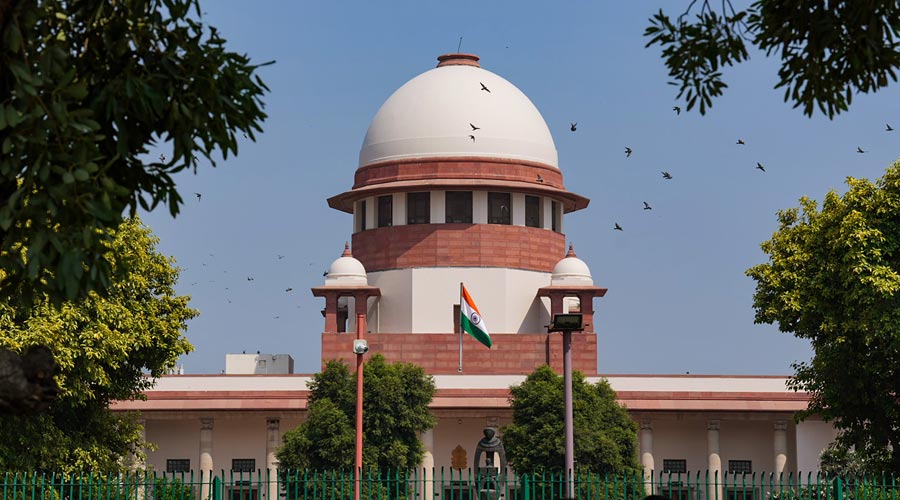Jahanvi Agarwal
In a landmark ruling, the Supreme Court emphasized the crucial balance between the right to free speech and the use of ex-parte injunctions in defamation cases. This decision came to light as the court examined the case between Bloomberg, an international media conglomerate, and Zee Entertainment, which had accused Bloomberg of publishing a defamatory article. The apex court’s intervention not only set aside the trial court’s directive for Bloomberg to remove the contested article but also underscored a broader principle regarding freedom of expression and the public’s right to information.
At the heart of this judicial scrutiny was the trial court’s decision, which had been supported by the Delhi High Court, to impose an ex-parte injunction against Bloomberg, effectively curtailing the dissemination of the article before a full trial could examine the merits of the defamation claim.
The Supreme Court, led by Chief Justice D Y Chandrachud, alongside Justices J B Pardiwala and Manoj Misra, critiqued this approach, highlighting the inherent risks it poses to the fundamental rights of speech and information. The bench asserted, “The grant of a pre-trial injunction against the publication of an article may have severe ramifications on the right to freedom of speech of the author and the public’s right to know.”
The Justices further elucidated that such injunctions, particularly when granted without the other party’s input (ex-parte), should be a rare exception rather than the norm. They should only come into play when the material in question is unmistakably false or crafted with malicious intent.
“Granting interim injunctions, before the trial commences, in a cavalier manner results in the stifling of public debate,” the bench explained, underscoring the delicate balance courts must maintain between protecting reputations and safeguarding public discourse.
The Supreme Court criticized both the trial and the High Courts for not adequately assessing the strength of Zee Entertainment’s claim or the broader implications of the injunction on free speech. “The error committed by the trial judge had been perpetuated by the high court,” the justices remarked, advocating for a more reasoned approach that weighs the preliminary evidence, the potential harm, and the public interest.
This case also brought to light the strategic use of defamation lawsuits as a tool to intimidate or silence media outlets, a tactic known as “lawfare”. The court warned against the potential abuse of prolonged litigation to suppress critical voices and stifle public participation in democratic discourse.
In conclusion, the Supreme Court’s ruling serves as a vital reminder of the judiciary’s role in protecting free expression while ensuring that defamation claims are thoroughly vetted. By critiquing the hasty imposition of ex-parte injunctions, the court champions a more nuanced, evidence-based approach to such legal disputes.
This decision not only vindicates Bloomberg’s stance, as their spokesperson expressed satisfaction with the outcome, but also reinforces the judiciary’s commitment to upholding the constitutional rights to freedom of speech and the press in the face of defamation allegations.
Case Name: Bloomberg Television Production India Private Limited v. Zee Entertainment Enterprises Limited
Dairy Number: 79/2024
Bench: Chief Justice D Y Chandrachud, alongside Justices J B Pardiwala and Manoj Misra.

